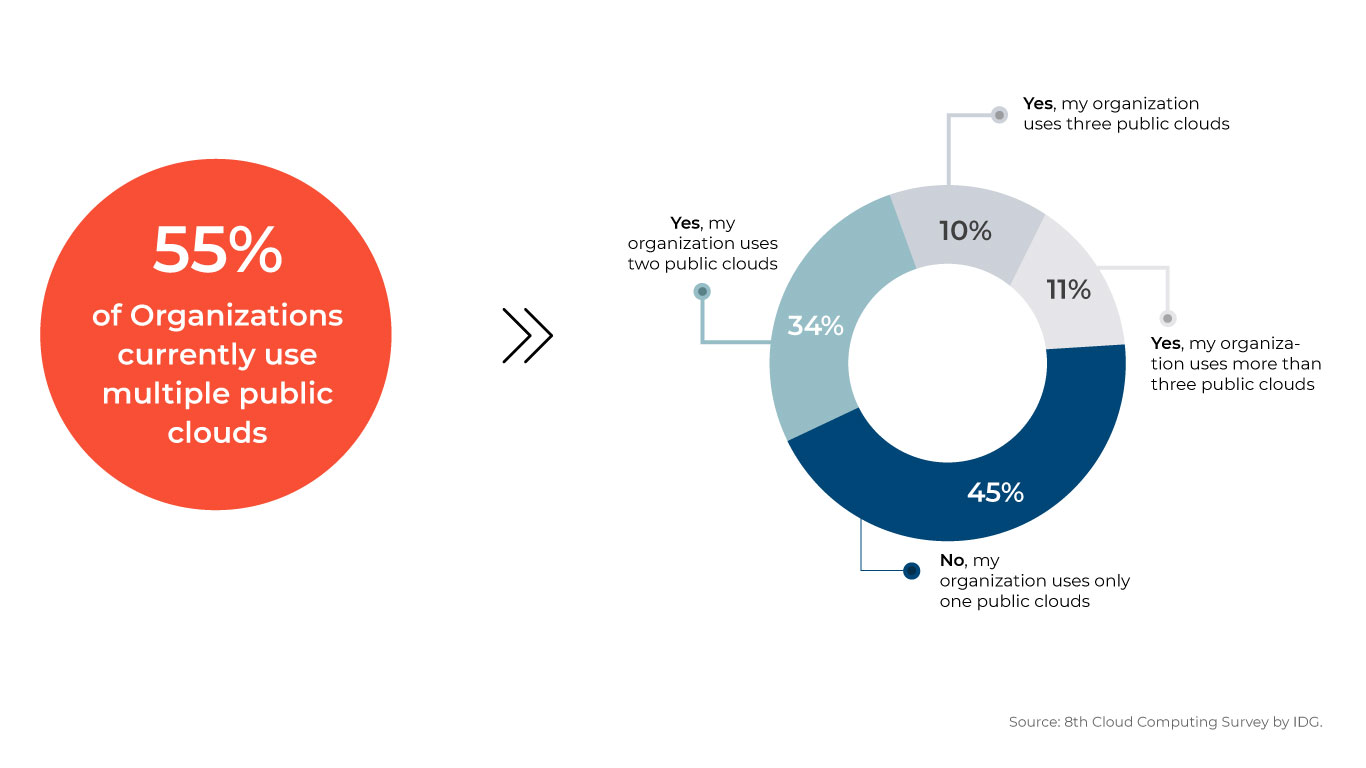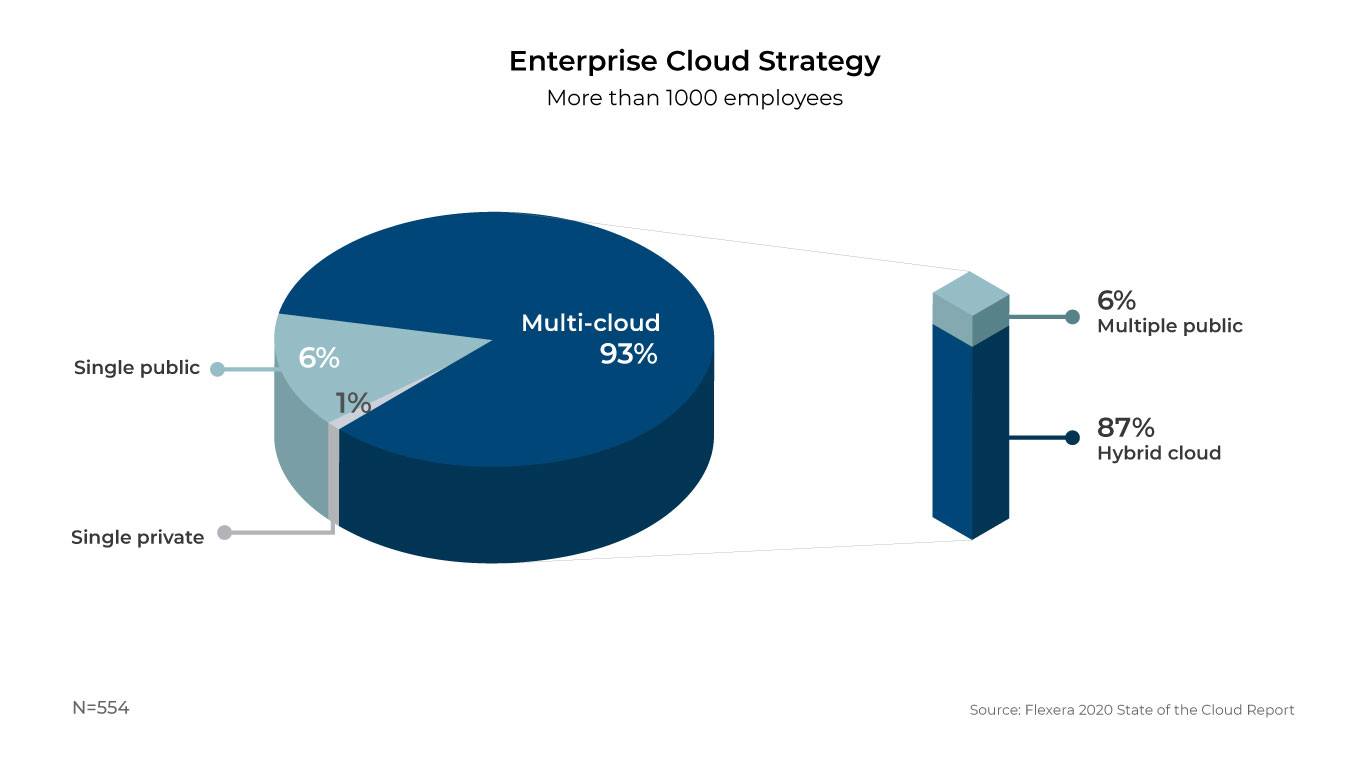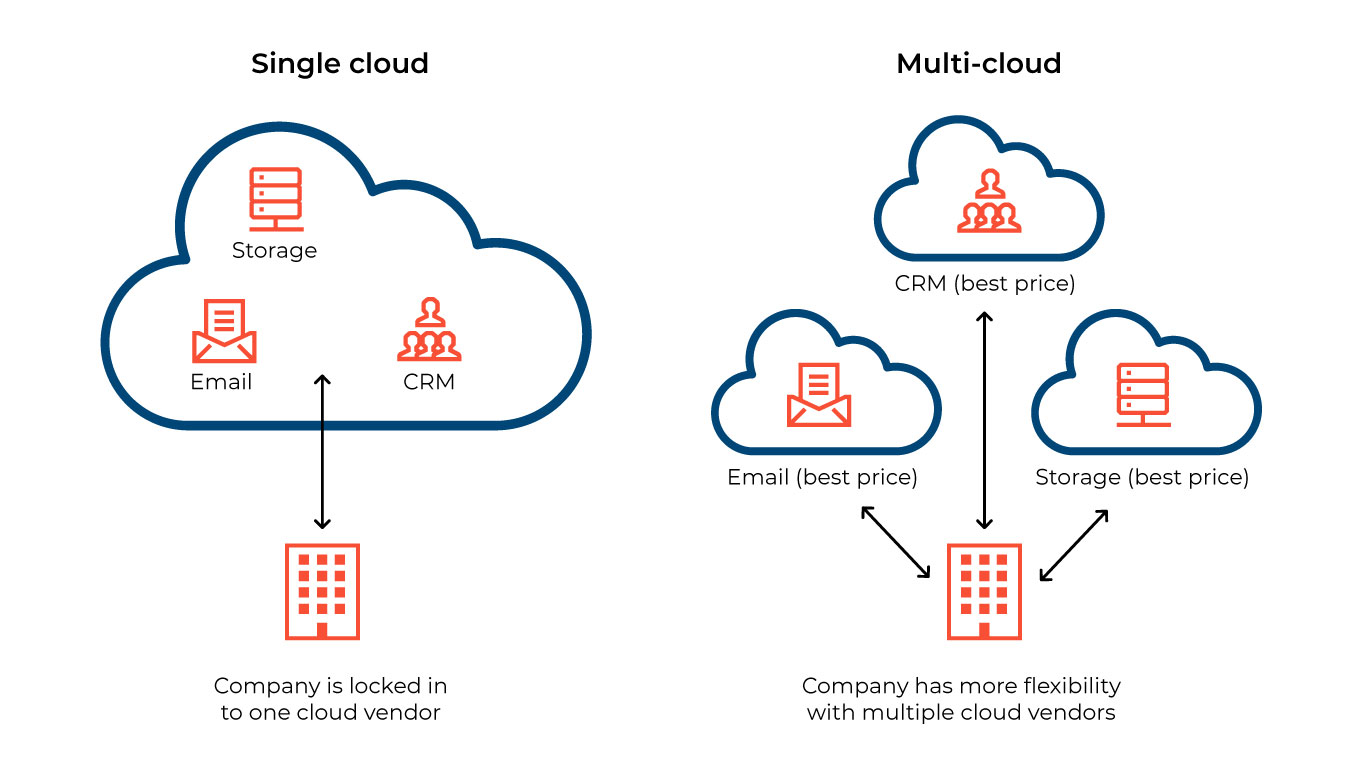The cloud is quickly becoming widely adopted as a technology and business enabler, but that umbrella term — excuse the pun — as well as buzzy phrases such as hybrid cloud and multi-cloud leave much to the imagination for those trying to develop a concrete cloud implementation. What do these terms mean and why all the buzz?
Cloud Terms Boiled Down: What is Multi-Cloud?
Industry insiders try to help define hybrid and multi-cloud by citing hybrid as the underlying technology — whether the cloud is a mix of private and public, on-premises, and outsourced resources — whereas multi-cloud is what business executives use to implement and manage cloud services from different providers. Although both hybrid implementations and multi-cloud strategies are increasingly popular, multi-cloud is discussed among IT staff and business executives. In the 8th Cloud Computing Survey by IDG, it turned out that more than 55% of the survey respondents had already moved to multiple public clouds setup.

Why All the Interest in Multi-Clouds?
The multi cloud strategy enables business executives to use different cloud providers for different purposes, offering privacy and security protections, diverse application offerings, flexibility and reliability, vendor lock-in avoidance, and overall cloud optimization. With an increasing list of cloud providers’ options without much discernible difference in price, company decision-makers can pick and choose cloud offerings based on the best provider for each part of their businesses. The Flexera 2020 State of the Cloud Report states that companies with more than 1000 employees tend to opt for multi-cloud hybrid implementations.

Here are the four key benefits of switching to a multi-cloud setup:
- Business Continuity: By setting up a multi-cloud approach, organizations can ensure continuous service and have reserved cloud services as a key part of the disaster recovery and business continuity strategy.
- Security: A multi-cloud approach enables an organization to forge secure, direct cross-connections with its global locations, partners, and service providers.
- Control, reliability, and service delivery speed: In this setup, businesses can have low-latency access to data via multiple cloud workloads even as data remains under their control; scale bandwidth; move network deployments closer to your customers to reduce latency and incorporate new information sources from best-of-breed cloud providers.
- Helps avoid vendor lock-in: One of the biggest setbacks with a single cloud strategy could be vendor lock-in. Multiple circumstances can adversely impact a business if they are locked in with a single vendor.
- You can be stuck with a low performing vendor if, for any reason, the service quality of the vendor goes down.
- Change in the vendor’s product portfolio or pricing can impact your projects.
- The vendor could go out of business.

All the above risks are mitigated by choosing a multi-cloud strategy.
Multi-Cloud Challenges and Considerations
Multi-cloud strategies, however, are not without their pitfalls. So, what challenges and important considerations should business executives keep top of mind regarding multi-cloud implementations?
- Don’t bite off more than you can chew: If you haven’t yet embraced cloud technology, going multi-cloud can add complexity you’re not yet ready to handle. Make sure your team is cloud-competent before delving into a multi-cloud strategy.
- Have a firm grasp on why you’re investing in a multi-cloud setup and ensure buy-in from business executives and IT staff.
- Plan, strategize, and plan again. A tactful strategy entails monitoring, load balancing, security, patch and upgrade deployments, and more, setting you up for smooth operations and growth.
- Be sure you aren’t duplicating services — and costs — among your cloud providers. Cloud sprawl is a very real thing. Although there is no “right” number of providers and services, make sure you strategically add and manage cloud investments.
- Avoid information silos that will necessitate different management tools and skillsets.
The reality is that multi-cloud use cases are many, but their potential pitfalls can be just as numerous if not managed appropriately.
If Everyone is Doing It … Shouldn’t We?
Although not without their challenges, multi-cloud strategies make sense in many cases. For those short on cloud skills or overwhelmed by the complexity of multi-cloud planning, implementation, and management, partnering with a managed services provider (MSP) can help ensure you are getting the most out of your strategy and your investment. Many MSPs offer a customized interface that allows customers to review their multi-cloud providers and services from a single interface. Most MSPs also provide 24/7 support. This approach also enables in-house IT staff to focus on aligning with and meeting business objectives while MSP cloud experts help with the cloud operations heavy lifting.
At Synoptek, we guide and enable you to create the right hybrid and multi-cloud setups that streamline operations and drive better business. Learn more.



